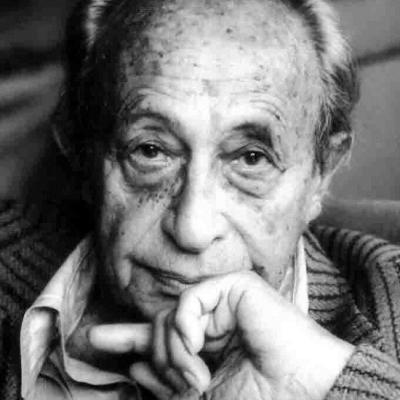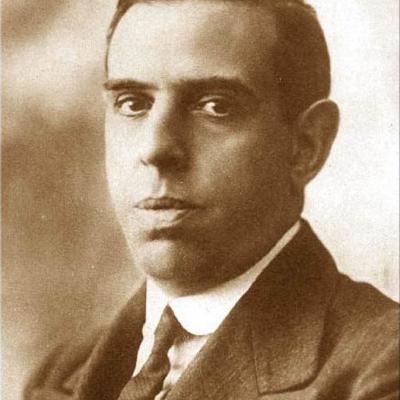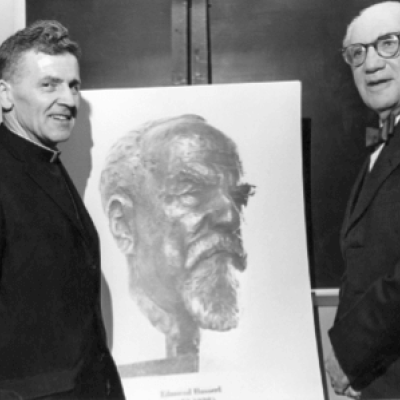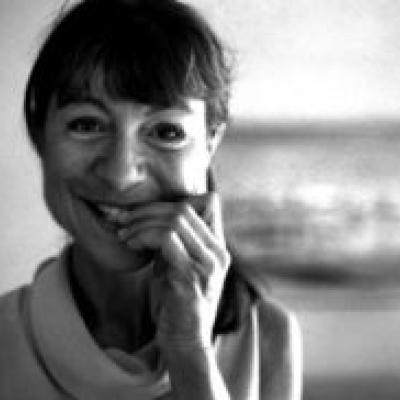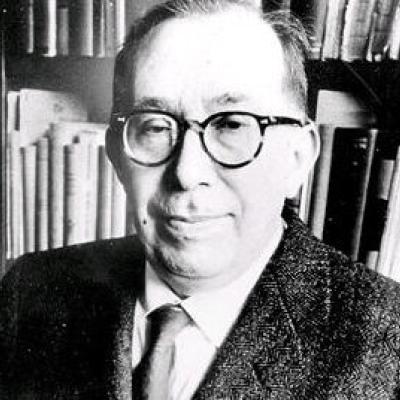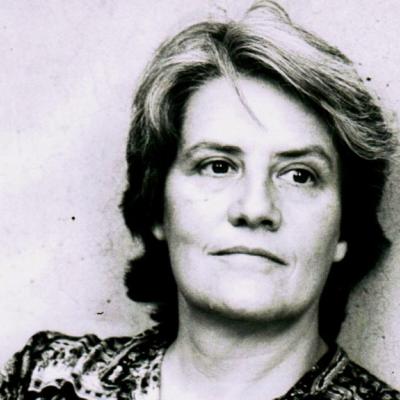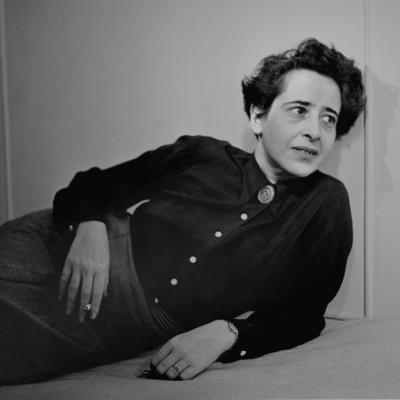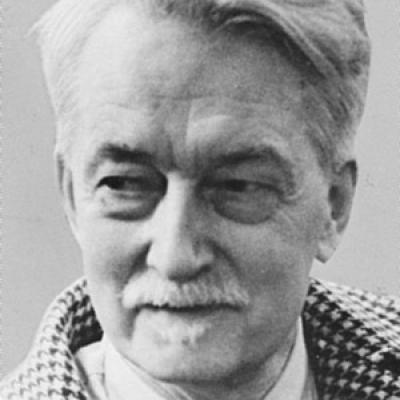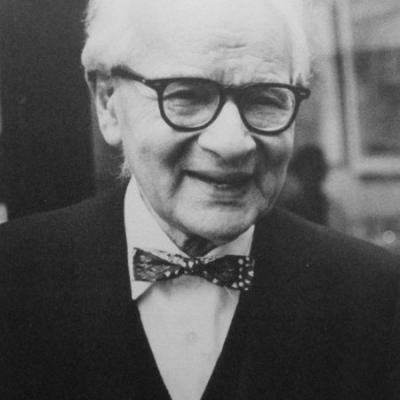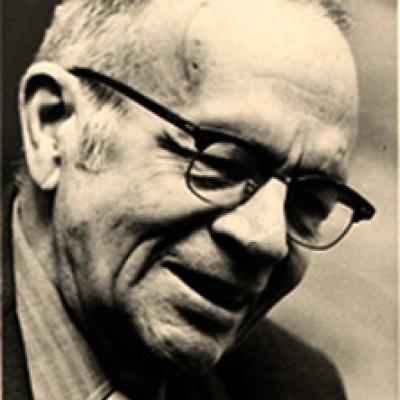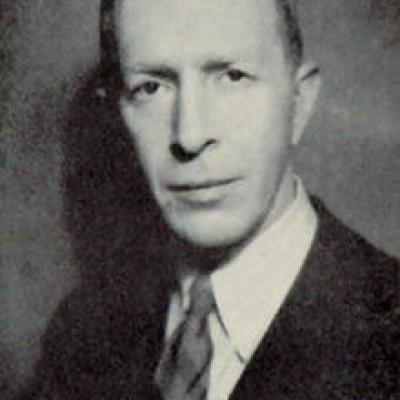Category: Philosophy
Francesca Cernia Slovin Immigrant Arts and Women’s Empowerment Summit 2018
Francesca Cernia Slovin was born on March 14, 1952 in Terni, Italy, to the late Elena and Enrico Cernia. She was an older sister to the late Paola and Michele, whose memories she carried tightly.
Maternal Thinking
The passions of maternity are so sudden, intense and confusing that we ourselves often remain ignorant of this perspective, the thought that has developed from our mothering. Lacking pride, we have failed to deepen or to articulate that thought.
Metaphysics and Measurement
In 1939, there appeared in the series "Actualites Scientifiques et industrilles" three slim volumes of "Etudes galileennes" by Alexandre Koyre who was then distinguished mainly as a historian of philosophy.
Goliath—The March of Fascism
There is no Italian Race. Many bloods are intermingled in the population crowded between the ridge of the Alps and the shore of the African sea. Even the geographical concept of Italy is fairly recent.
An Approach to Husserlian Phenomenology
To be sure, an adequate understanding of any purposely employed method includes an understanding of what the one using the method sets up as the thing to be actualized by its means.
A Special Supplement: Reflections on Violence
No one concerned with history and politics can remain unaware of the enormous role violence has always played in human affairs; and it is at first glance rather surprising that violence has so seldom been singled out for special consideration.
Hans Jonas
As a philosopher, ethicist, and scholar of religion, Hans Jonas has in many ways defined what it means to be a part of the intellectually dynamic community that formed the basis of the New School.
Giuseppe Borgese
Giuseppe Antonio Borgese was born in Polizzi Generosa, Palermo, on November 12, 1882 and died on December 4, 1952. He was initially drawn to the school of philosophical idealism headed by Benedetto Croce.
The Archives of Edmund Husserl in the United States
By the late 1930s, the Graduate Faculty of Political and Social Science at the New School for Social Research was a center for the study of Husserlian phenomenology in United States.
Francesca Cernia Slovin
Francesca Cernia Slovin (March 14, 1952-April 2, 2017) taught at The New School from Spring 1996 to Fall 2000, and once again in Fall 2003.
Leo Strauss
Leo Strauss was a twentieth-century German Jewish émigré to the United States whose intellectual corpus spans ancient, medieval and modern political philosophy and includes, among others, studies of Plato, Maimonides, Machiavelli, Hobbes, Spinoza, and Nietzsche.
Sara Ruddick
Sara Ruddick (1935-2011) was an influential philosopher and feminist, best known for her analysis and research on the care of children. She earned her undergraduate degree at Vassar College in 1957, and her Ph.D. in philosophy from Harvard in 1964.
Hannah Arendt
Many at The New School would agree that it is difficult to graduate from the university without hearing the name Hannah Arendt.
Jacques Maritain
Jacques Maritain (b. November 18, 1882, Paris; d. April 28, 1973 Toulouse) was a noted Christian humanist philosopher and convert to Roman Catholicism. Maritain, raised Protestant, and his Jewish wife, Raissa Oumansov, converted jointly in 1906, two years after their marriage in 1904.
Horace Kallen
Horace Kallen was a founding member of The New School, where he taught philosophy. You can read more about him here.
Dorion Cairns
Dorion Cairns (1901- 1973) was apart of the Graduate Faculty of the New School for Social Research in the 1950’s.
The Philosophy of Law
For twenty-four hundred years—from the Greek thinkers of the fifth century B.C., who asked whether right was right by nature or only by enactment and convention, to the social philosophers of today, who seek the ends, the ethical basis and the enduring principles of social control—the
The Phenomenological Approach in Social Science
The term “phenomenology” is today used in at least two undoubtedly different meanings—always disregarding Hegel’s Phenomenology of the Mind to which I have not devoted times sufficient for understanding it.
Persecution and the Art of Writing
In a considerable number of countries which, for about a hundred years, have enjoyed a practically complete freedom of public discussion, that freedom is now suppressed and replaced by a compulsion to coordinate speech with such views as the government believes to be expedient, or hol
My Last Meeting with Heidegger in Rome, 1936
In 1936, during my stay in Rome, Heidegger gave a lecture on Holderlin at the German-Italian Culture Institute. Afterwords, he accompanied me to our apartment and was visibly taken aback by the poverty of our furnishings.
Integral Humanism and the Crisis of Modern Times
To avoid misunderstanding, I should note at once that my point of view is here not that of the mere logic of ideas and doctrines, but that of the concrete logic of the events of history.
Towards a Philosophy of Technology
Are there philosophical aspects to technology? Of course there are, as there are to all things of importance in human endeavor and destiny. Modern technology touches on almost everything vital to man’s existence-material, mental, and spiritual. Indeed, what of man is not involved?
Strata of Experience
Discussions concerning the relation between science and philosophy are still likely to be carried on in terms of the controversy as to whether all knowledge springs from (or has its source in) experience.
“On the Purpose of this Volume” and “Three Disappointed Methods of Reform”
If some magical transformation could be produced in men’s ways of looking at themselves and their fellows, no inconsiderable part of the evils which now afflict society would vanish away or remedy themselves automatically.
The Historian and Truth
History is a science. It seeks the “truth.” But science is in quest of laws; history is content with describing the particular. What kind of particular? What is in the particular?
Crisis, History and the Image of Man
In his address at the 200th convocation of the University of Chicago, June 11, 1940, President Hutchins invited American youth to reexamine the principles which make life worth living.
Concept and Theory Formation in the Social Sciences
The title of my paper refers intentionally to that of a Symposium held in December, 1952, at the annual meeting of the American Philosophical Association. Ernest Nagel and Carl G.
The Origins of Modern Science: A New Interpretation
Since the heroic age of Pierre Duhem, to whose amazing energy and learning we owe the revelation of medieval science, much work has been devoted to the study of that subject.
Alfred Schutz: Philosopher and Social Scientist
Aron Gurwitsch’s critique of Schutz’s essay “The Stranger” is the starting point for this consideration of Schutz’s relationship with phenomenology. This relationship is based on Schutz’s emphasis on the value of the “average” as a phenomenological structure.
Foreword
On rare occasions in literary history a new publication appears, not as a result of long, conscious planning, not a product of particularistic ambitions, but a spontaneous generation within a dominant circle of circumstances. Social Research is such a spontaneous growth.
Love’s Reason
My life has been shaped by a love affair with Reason. When I felt awkward or left out as a child or beset by lustful and envious fantasies, I clung to Reason in the most obsessive manner, determined to be faithful despise my “wild”, unpleasant feelings.
The Influence of Darwin on Philosophy
An elaborate preface to a philosophic work usually impresses one as a last desperate effort on the part of its author to convey what he feels he has not quite managed to say in the body of his book.
The Science of Uncertainty: The Potential Contribution of Design to Knowledge
Thought essentially as configuration or as disposition, though in ways that will have to be explored, design is difficult conceptually.
The Savage Society of Thorstein Veblen
One hundred and twenty-five years had now passed since The Wealth of Nations appeared in 1776, and in that span of time it seemed as if the great economists had left no aspect of the world unexamined: its magnificence or its squalor, its naivete or its sometimes sinister overtones, it
My Own Life
I was born July 4th, 1901, in the village of Contoocook, in the town of Hopkinton, New Hampshire. My father, James George Cairns, was the pastor of the Methodist Church in Contoocook, and I was the first child of my parents.
The Dark Side of Religion
The advocatus diaboli, as you know, is not a lawyer employed by the Prince of Darkness. He is a faithful member of the Church whose duty it is, when it is proposed to canonize a saint, to search out all the opposing considerations and to state them as cogently as possible.
Reflections on Violence
Alexandre Koyré
During World War II, Alexandre Koyré taught at the New School for Social Research. You can read more about him here.
